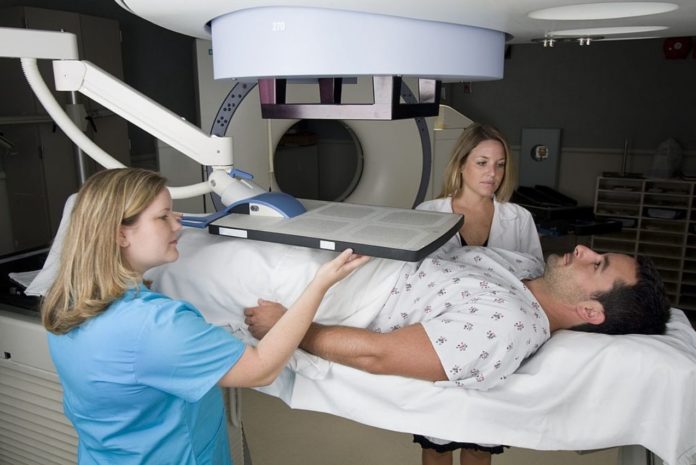Some people are hesitant to talk to their doctors about their health and health concerns. This is especially true when it comes to prostate cancer, though it is the third leading cause of cancer-related deaths in the United States.
“There are some unusual and less common symptoms to look out for,” says Clinical oncologist Professor Heather Payne.
For example, leg swelling could be an unusual sign that can indicate your prostate tumor has reached the lymph nodes in the pelvis. Whenever prostate cancer reaches other body parts is an indication of the advanced stage of prostate cancer, which means you need to act fast.
- Does This Mean We Stopped Being Animal and Started Being Human Due to ‘Copy Paste’ Errors?
- The One Lifestyle Choice That Could Reduce Your Heart Disease Risk By More Than 22%
- Aging: This Is What Happens Inside Your Body Right After Exercise
- Immune-Boosting Drink that Mimics Fasting to Reduce Fat – Scientists ‘Were Surprised’ By New Findings
- Gun Violence in America: What They Don’t Talk About at the Debate
And feeling “back, hip, or pelvic pain” or physical sensation as a “dull ache or sharp stabbing sensations” including unexplained weight loss may be the result of the tumor growing to surrounding areas, such as the bones.
According to professor attached to The Prostate Centre at The Harley Street Clinic, it is less common but “painful ejaculation and blood in semen” ccould also indicate prostate cancer.
Make sure you speak to your GP or visit a specialist if you have any of the symptoms.
recommended Professor Payne.
Most of the time the symptoms can be explained by other, less serious conditions.
However, it’s always best to visit your GP as soon as possible to rule prostate cancer out.
Other signs of an advanced prostate, such as:
- Urinate more frequently.
- Taking a long time to start urinating.
- A slow flow or interrupted flow of urine.
- Feeling as if your bladder has not completely emptied.
- Blood in the urine.
- Pain or discomfort when sitting due to a growing prostate.
The onset of symptoms usually happens once the cancerous growth has grown large enough to put pressure on the urethra.
At the early stages of prostate cancer, “it can be difficulty to detect” due to the fact that there are often “very few, or sometimes no symptoms” of the disease.
Men are often diagnosed following a raised PSA blood test which leads to further investigations.
A PSA test – which can be done at a GP surgery – measures the level of prostate-specific antigen (PSA) in the blood.
According to her, a blood test can “detect prostate cancer in its very early stages – before the onset of symptoms”.
But, don’t be so dependent on a PSA test as “it’s not always accurate”, she warned.
Anyway, “it provides a strong indication as to whether further medical tests are required, such as an MRI Scan or biopsy”.
- Does This Mean We Stopped Being Animal and Started Being Human Due to ‘Copy Paste’ Errors?
- The One Lifestyle Choice That Could Reduce Your Heart Disease Risk By More Than 22%
- Aging: This Is What Happens Inside Your Body Right After Exercise
- Immune-Boosting Drink that Mimics Fasting to Reduce Fat – Scientists ‘Were Surprised’ By New Findings
- Gun Violence in America: What They Don’t Talk About at the Debate
Image Credit: iStock
